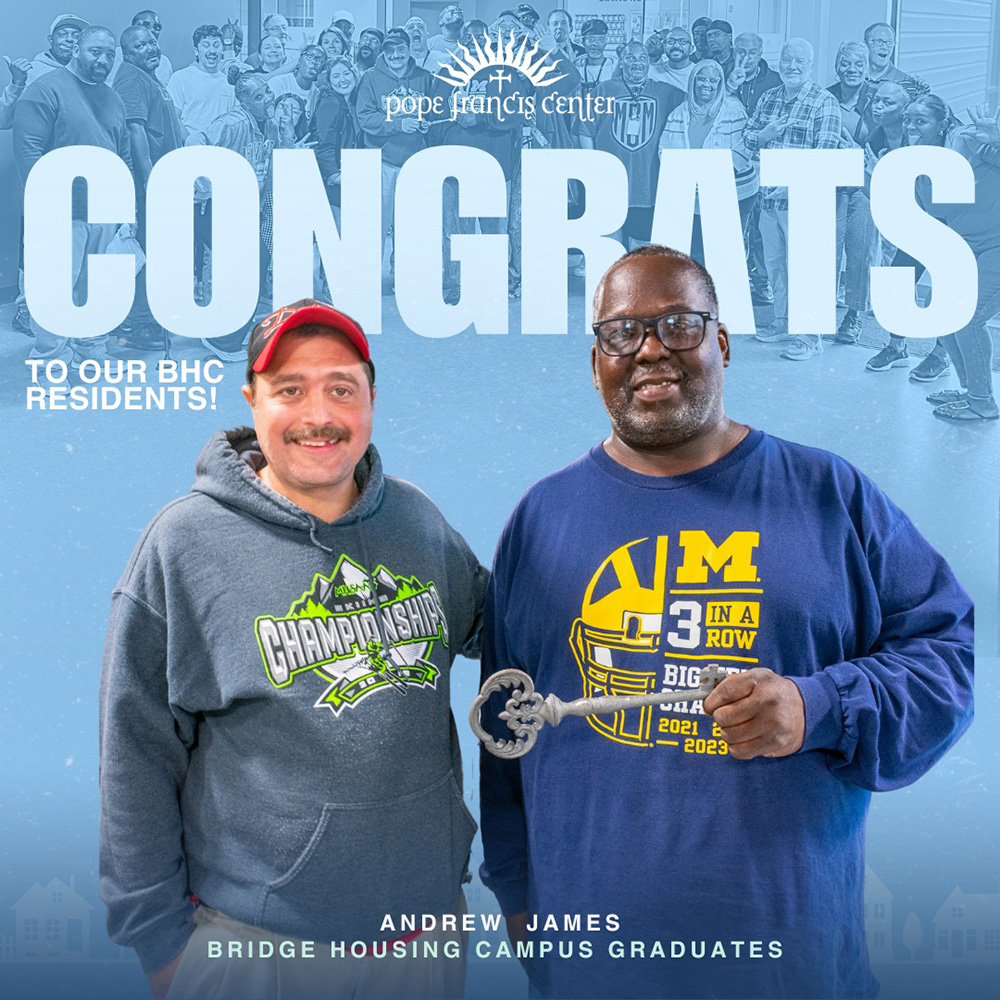Graduating to a Better Life
There were moving speeches, a heartfelt blessing from Fr. Tim McCabe and lots of smiles. And when it was over, James and Andrew left not just as graduates of the Bridge Housing Campus (BHC), but as examples of what can happen when people are given the right environment and tools to seek a better path for themselves.
BHC welcomed its first cohort of residents last September. From breakfast until bedtime, residents have purpose, consistency, structure, dignity — and forward momentum — built into their routine. There are morning intentions, group therapy, recovery support, casework, job coaching and electives like art or fitness.
“It’s not summer camp,” says Joe Philip, director of operations.
It’s also not easy, or even fun. “We don’t hand out diplomas for making your bed. It takes grit. These men are confronting years — sometimes decades — of trauma, addiction, survival-mode living, and isolation. It takes a level of honesty and courage most people aren’t required to tap into in daily life. And the truth is, the hardest part isn’t the schedule or the meetings. It’s learning to believe that you’re worthy of healing and stability,” Joe says.
BHC is designed for residents to take 90 to 120 days to complete the program and be ready to live in permanent, supportive housing. However, the timeline can vary depending on the individual.
As PFC approaches the one-year mark since BHC opened to residents, Joe said the learnings and experience have shone a fresh light on how Detroit approaches the issue of chronic homelessness.
“We’re not a shelter. We’re not a halfway house. And we’re definitely not here to ‘fix’ people. This is a place where people learn to trust again — starting with themselves. I believe BHC has the power to change how Detroit thinks about homelessness. If we want lasting change, we have to stop asking, ‘Why aren’t they ready?’ and start asking, ‘Are we giving people something worth being ready for?’”


